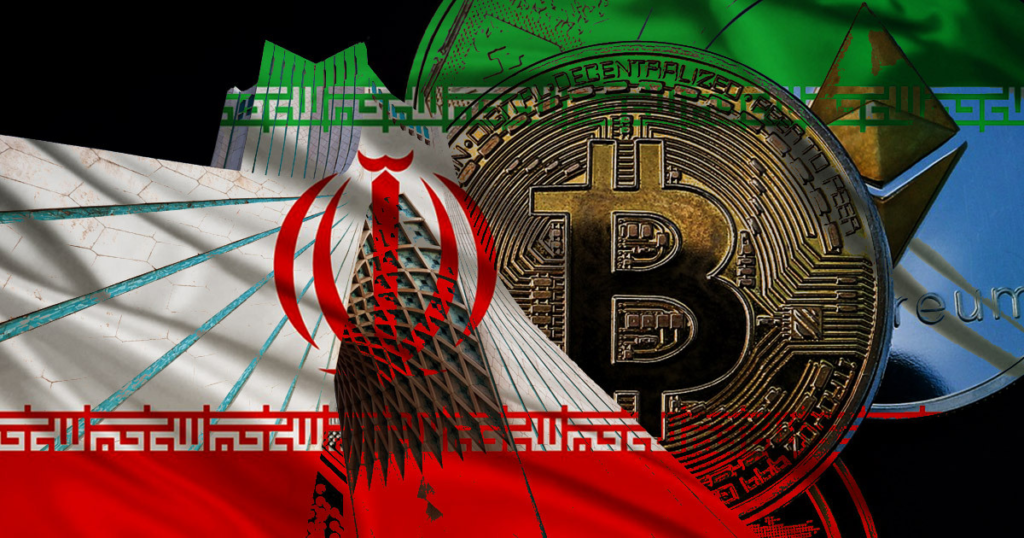Iran circumvents financial sanctions by paying for an import with a cryptocurrency. Will Bitcoin become the new currency? Or is it a dollar token? And who is the trading partner? We collect what there is to know and speculate.
On Aug. 9, Reuters news agency reported that Iran paid for an import with cryptocurrency for the first time.
Reuters refers to the semi-official news agency Tasnim; a tweet from Ali Reza Peymanpak, Deputy Industry Minister and head of the Iran Trade Promotion Organization (ITPO), confirms this.
The information is consistent but thin: it was a $10 million import. Which goods were imported, who the exporter is, which cryptocurrency was used - all this remains unknown.
Does Iran Use Bitcoin? This would not be unreasonable. The country allowed the mining of bitcoin and other cryptocurrencies in 2019, but made it a condition that the mined coins should be available for importing goods . As in Venezuela , Bitcoin was to serve as a currency after financial sanctions cut Iran off from dollar traffic. Because Bitcoin is a method of converting energy into an uncensorable currency. So it's close.
A Coindesk reporter asked around at the World Economic Forum in early 2020 whether Arab elites were willing to pay for oil shipments with Bitcoin. Almost everyone was skeptical because they didn't trust cryptocurrencies. However, many yearned for an alternative to the dollar, especially for oil supplies, but felt that this should be driven more by Russia and China.
Could this be the moment now? Russia is pushing a move away from the dollar regime in international trade and Iran is the first trading partner? That would fit geopolitically well.
The two countries have even openly announced this . They have intensified their relations since the Ukraine war, and the question of how to circumvent trade sanctions is central.
In June, the Governor of the Central Bank of Iran, Ali Salehabadi, traveled to Moscow. Shortly thereafter, the government announced that Russia and Iran were developing a settlement system for the ruble-rial currency pair. This allows trading liabilities to be settled in the partner's currency instead of going through the dollar. On July 9th, the first trading with this system took place. But it was only three million rubles, which corresponds to about 45,000 euros.
And Russia – Not so long ago, Russia offered that “friendly nations” could pay for imports with cryptocurrencies like bitcoin. So it would definitely be an option.
However, there are some other indications that Russia and Iran would not use Bitcoin. For example, Peymanpak's tweet contains a small clue: he announces that "the use of cryptocurrencies and smart contracts in foreign trade" will be widespread this year. Both Twitter and Google unanimously translate the key words: “cryptocurrencies” and “smart contracts”. Now that sounds more like one or more tokens on a smart contract platform like Ethereum.
For example, tokens for rubles and rials. Or for dollars. However, these tokens do not have to circulate on an open blockchain like Ethereum. They could also run on a closed blockchain, as most “CBDC” (Central Bank Digital Currency) projects prefer. Under certain circumstances, a blockchain is only part of another system.
Russia is apparently working on such a blockchain. As recently as June, Rostec, a Russian state-owned company specializing in high-tech civil and military products, said it had developed a blockchain platform called CELLS that could replace SWIFT.
This could be part of the alternative to Swift that Russia and Iran have long wanted to establish. It appears to be slowly gaining momentum under the pressure of financial sanctions. At the end of July, central banker Safari said it had struck a very good deal with Russia to use a Swift-like system to “de-dollarize” transactions. The Iranian government hopes this system will include other currencies in the future, for example the Turkish lira, the Indian rubie or the Arabic dirham.
Cryptocurrencies themselves, on the other hand, should be banned domestically. As recently as Aug. 12, the governor of the Central Bank of Iran said it was banned from buying, trading or investing in cryptocurrencies. Only mining for the purpose of paying for imports is legal - which in turn could be an indication that Iran paid for the import with a mineable cryptocurrency, perhaps also Ethereum.
In Russia, too, people don't think much of letting citizens use cryptocurrencies freely. In July, a law came into force that completely prohibits the use of cryptocurrencies as a means of payment. A tyrannical state may use cryptocurrencies selectively – but cannot possibly condone their free development.
My Top PicksHoneygain - Passive earner that pays in BTC or PayPalMandalaExchange -The Best no KYC crypto Exchange!
BetFury - Play And Earn BFG for daily Bitcoin and ETH dividends!
Pipeflare - Faucet that pays in ZCash and Matic, Games pay in DAIWomplay - Mobile dApp gaming platform that rewards in EOS and BitcoinCointiply - The #1 Crypto Earning SiteLiteCoinPay -The #1 FaucetPay earner for LitecoinLBRY/Odysee - YouTube Alternative that lets you earn Money by viewing videos!FaucetPay - The #1 Microwallet PlatformFREEBTC - The #1 FaucetPay earner for Satoshi'sFaucetCrypto - An earning/faucet site that pays out instantlyFireFaucet - An earning site that pays better for some than Cointiply
DogeFaucet - Dogecoin Faucet
xFaucet - BTC, ETH, LTC, Doge, Dash, Tron, DGB, BCH, BNB, ZEC, FEY - Claim every 5 minutes
Konstantinova - BTC, ETH, LTC, Doge, Dash, Tron, DGB, BNB, ZEC, USDT, FEY, 25 Claims Daily


Comments
Post a Comment